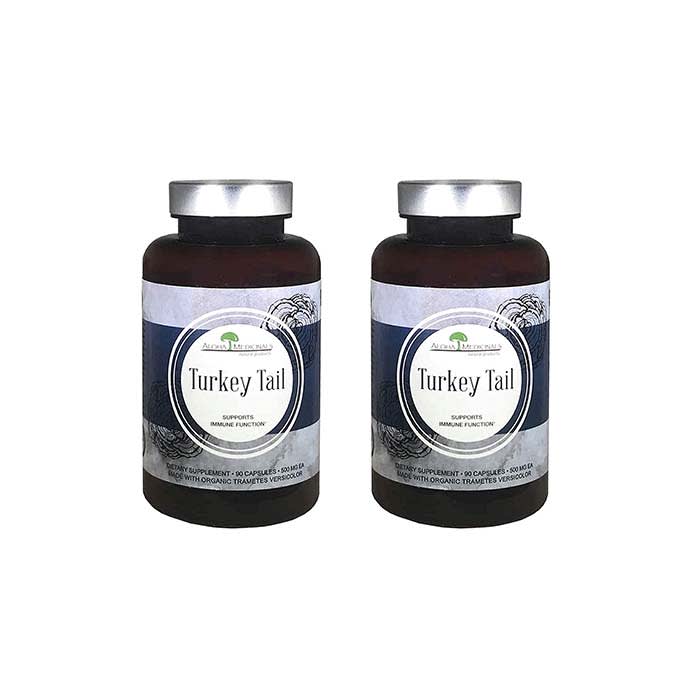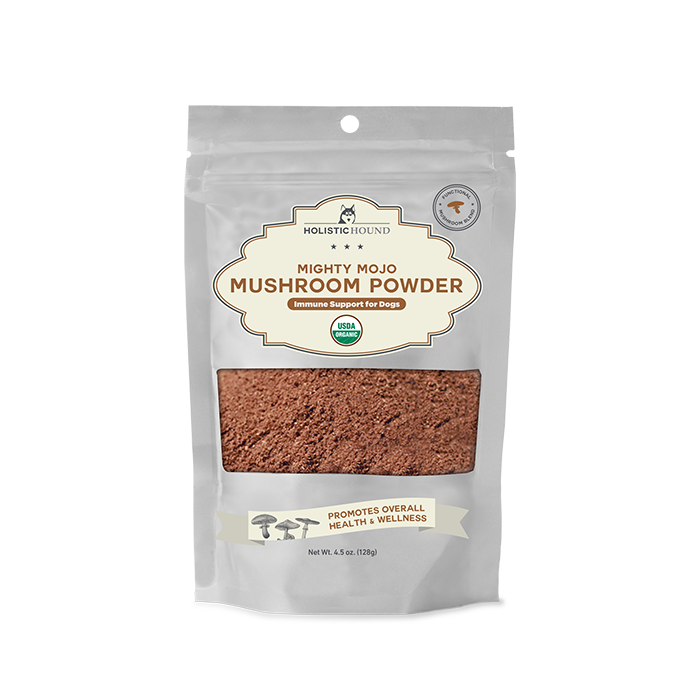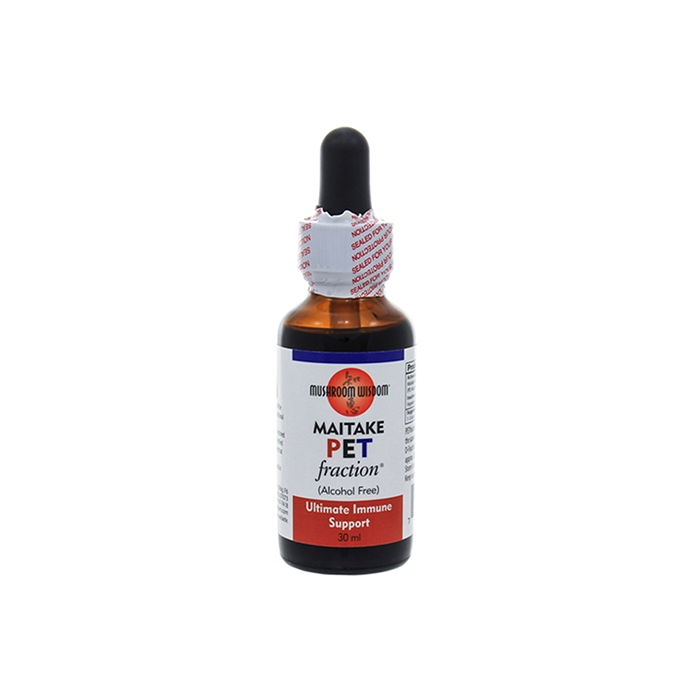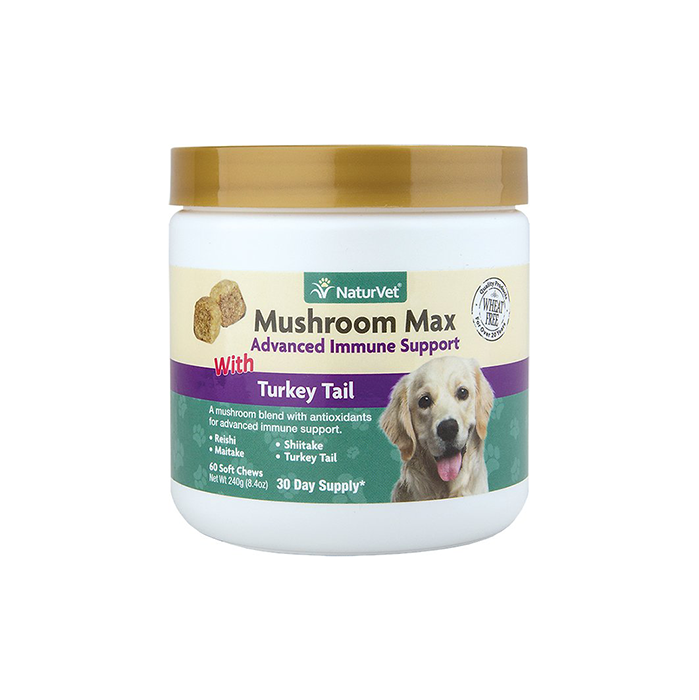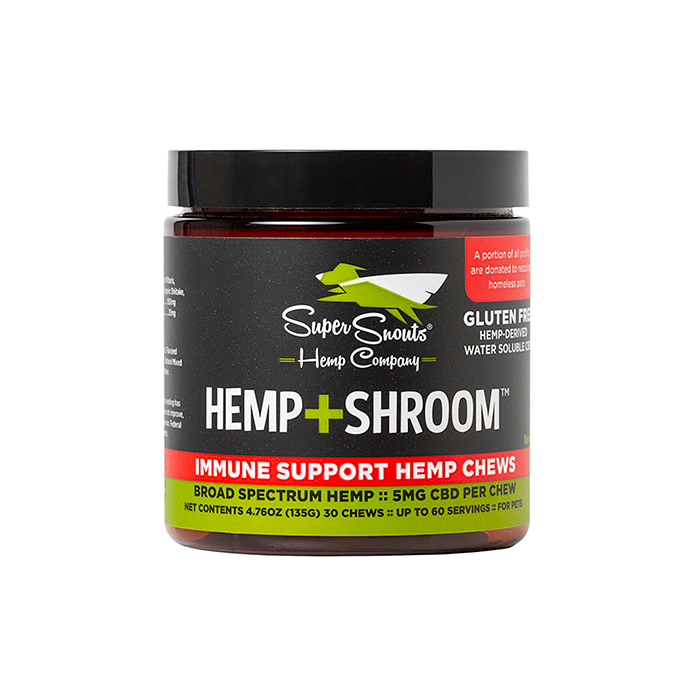6 Mushroom Superfoods that Won’t Turn Your Dog Into a Zombie
Nothing to fear here The Last of Us fans — ’shrooms are great immune-boosters.
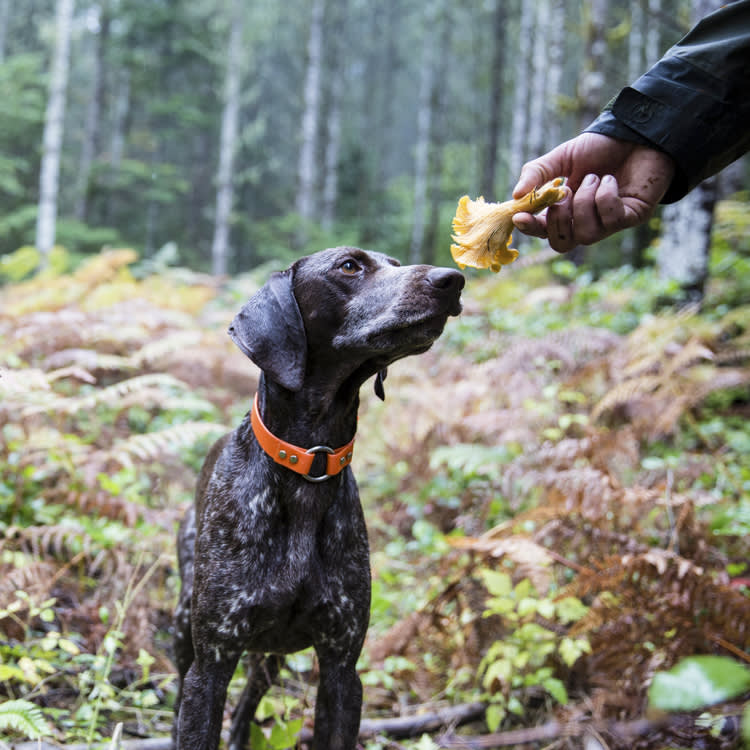
Share Article
If The Last of Us has replaced White Lotus as your Sunday appointment TV, you know a lot about cordyceps, a.k.a. the “zombie-ant fungus.” Thankfully, mammals don’t have to worry opens in new tab about this nutrient-draining parasite that turns its insect host into a glorified puppet — shudder. Instead, we can focus on all the mushrooms that improve our health and make us, well, the opposite of zombies.
In fact, mushrooms used for medical or health reasons are positively booming. These “third kingdom” (neither plant nor animal) fungi have captured the imagination of a public that is seeking ever more nutrient-dense whole foods to supercharge their days. And it, turns out, your dog can benefit from that supercharge just as much as you.
Mushrooms Make A Healthy Difference
Mushrooms have been used for their health-promoting properties for hundreds of years. Yes, they’re delicious on pizza, and yes they’re nutritious as a low-calorie, high-fiber, nutrient-dense food. Mushrooms have many components in them that provide individual benefits for specific needs, from brain health to weight managementopens in new tab.
One interesting shroom-y component is a type of carbohydrate known as a polysaccharide, in particular beta-glucans, which are helpful for immune function. Indeed, maybe the primary reason pet parents feed their dogs mushrooms is because research shows certain kinds can help with cancer.

“Cancer is a big one,” says Dr. Robert Silver, an integrative veterinarian, consultant to the animal nutraceutical industry, and author. “Once a pet owner has a pet that has had cancer, then they want to make sure their next pet is more resistant to cancer.”
Canadian researchersopens in new tab in 2020 surveying dog owners online, through vets or social media found dogs with a cancer diagnosis were more likely to be given mushroom supplements (as well as turmeric). And with good reason. A landmark studyopens in new tab at the University of Pennsylvania’s School of Veterinary Medicine compared cancerous dogs undergoing chemo with those who instead took turkey tail mushrooms. Surprisingly, chemo dogs live an average 86 days while the mushrooming dogs lived 199 days and some cancerous dogs on ’shrooms lived more than a year. The effective dose was 100mg turkey tail for every kilogram (2.2 pounds) of body weight.
Meet the Different Mushroom Strains
While there are about 14,000 different species of mushrooms, from a nutritional or medical perspective the number in commercial use is closer to only 14. Some argue there are a mighty six that highlight the group. Here’s the slate of them and what they can do for your pet.
Chaga
Known as the “king of mushroomsopens in new tab,” it was first discovered growing on trees in Russia and used to help age gracefully. Chaga (Inonotus obliquus) has the highest antioxidant potential of any mushroom, and its beta-glucans make it especially good for immunity.
Cordyceps
Cordyceps are used for endurance because of their ability to improve the availability of oxygen in the blood. Traditional Tibetans and Chinese didn’t know that exactly, but they knew enough to use Cordyceps sinensis to help with high altitude living where the air is thin, and also for stamina, longevity and to keep illness at bay.
Lion’s Mane
This scarcely looks like what you think a traditional mushroom is supposed to look like. With long, stringy, tawny if not white fruiting bodies, you could see why it’s been named lion’s mane (Hericium erinaceus). In China, it has traditionally been used to boost the brainopens in new tab — mood, depression and overall cognitive function. It’s also known to support healthy immune function while acting as a general antioxidant for overall health and vitality.
Maitake
Maitake mushrooms, specifically what’s called the maitake D-fraction, is a popular supplement. It has been widely studiedopens in new tab and has been found to inhibit cancer cell growth or directly kill cancer cells in dogs. Cancer researchopens in new tab with maitake mushrooms began in Japan, and the optimum dose for animals is 25mg for every kilogram, or 2.2 pounds, your pet weighs.
Reishi
Pronounced ray-she, the Ganoderma lucidum mushroom has been used for millennia in China to extend life and promote health. It’s marketed as an immune booster and also used for cancer. Reishi has antihistamine properties and can help down-regulate an overactive immune system (allergies are an autoimmune condition), which can help dogs who scratch “hot spots” related to allergies and poor overall coat health.
Turkey Tail
Turkey Tail(Trametes versicolor) has been shown in a handful of studies in people with cancer to modestly extend lifespan. We’re not talking Methuselah, but still. These studies used extracted components from the turkey tail called PSK and PSP, which are an approved mushroom product used for cancer treatment in Japan. One studyopens in new tab found cancerous dogs not treated at all survived 86 days. But those treated with 50 mg turkey tail containing PSP survived 117 days, and those taking 100 mg lived 199 days.
“Mushrooms are huge,” says Dr. Silver. “I believe mushrooms, probiotics, antioxidants, and healthy oils should be a part of a daily wellness program for all two-leggeds and four-leggeds.” A mushroom pizza might not do the trick, but in supplement form there’s enough power-packed, health-promoting nutrients to not just maintain good health but also potentially help with The Big C. Below, the best veterinarian-recommended mushroom supplements.
The Best Mushroom Supplements
Btw, our editors (and their pets) picked out these products. They’re always in stock at the time we publish, but there’s a chance they’ll sell out. If you do buy through our links, we may earn a commission. (We’ve got a lot of toys to buy over here, you know?)
Disclaimer: This article is here to share information. But, much like pineapple on pizza, the topic may be controversial. Meaning, not all vets or pet professionals agree. Because every pet is a unique weirdo with specific needs. So, don’t take this as fact or medical advice. Talk things over with your vet when making decisions, and use your best judgment (about both your pet’s health and pizza toppings).

Todd Runestad
Todd Runestad lives in Colorado and has cycled through three sets of two dogs in the last 25 years. He is currently guardian of a cat and four chickens (hey, chickens are pets, too!). He writes about supplements and nutritional ingredients for NewHope.comopens in new tab and NaturalProductsInsider.comopens in new tab.
Related articles
![Puppy eating a bowl of blueberries]()
10 Superfoods You Should Share With Your New Dog
From kale to quinoa, these nutrient-packed picks deserve a spot in your dog’s food bowl.
![Dog biting into a bunch of carrots]()
How to Get Your New Dog the Vitamins and Minerals They Need
Your pup needs their greens, too.
![Indy, a woman with brown deadlocked hair, sitting next to a sunflower outside while holding a blind white dog named Okra]()
Urban Farmer Indy Srinath’s Pup Okra Lives the West Coast Granola-Fantasy Life
The star of the new Nat Geo series Farm Dreams feeds her pup fresh popsicles and foraged kelp.



